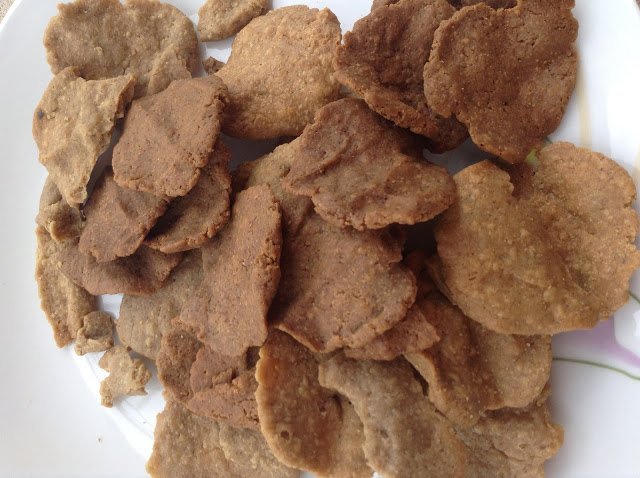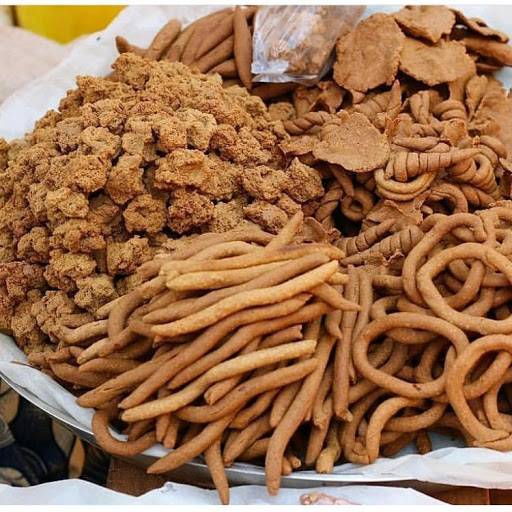The Origin and Delights of Kuli Kuli
During my recent exploration, I uncovered the true identity of the popular Nigerian delicacy, Kuli Kuli, and was astonished to learn its English name. Originating from the Nupe tribe in Nigeria, Kuli Kuli is a beloved food made primarily from peanuts or groundnuts as we call it in Nigeria. This nutritious snack boasts an impressive composition, containing 20g of protein, 100g of fat, and 10g of carbohydrates. But that’s not all – aside from its nutritional value, Kuli Kuli plays a crucial role in nourishing children and travelers while empowering women in their communities.

Display of Kuli Kuli, those delightful peanut bars, showcased by the skilled hands of market women.
Fascinating Facts about Kuli Kuli:
– The roots of Kuli Kuli can be traced back to the North Central region of Nigeria, where the resourceful Nupe people invented it as a snack in the year 1920, marking nearly a century of its existence.
– Crafted by blending oil, salt, black pepper, and a fusion of spices, it is not only a standalone snack but also serves as a key ingredient in popular Nigerian dishes like Kilishi and Suya.
– When it comes to enjoying this delectable treat, it is ideally served at temperatures reminiscent of its African origins.
Discovering the English Name:
In English, Kuli Kuli goes by the moniker “Peanut Bars,” offering an alternative name for those seeking to explore its culinary delights in a global context while still embracing its traditional roots.
- Beyond its nutritional benefits and versatile uses, it holds cultural significance, symbolizing the culinary heritage of the Nupe people and, by extension, Nigeria.
- As a snack invented almost a century ago, it remains an integral part of Nigerian cuisine, delighting taste buds and preserving culinary traditions.
It’s not just about the name but the rich cultural heritage it adorns. Picture this: the aromatic blend of groundnuts, the warmth of African spices, and the communal joy as children and travelers alike savor this nutty delight. Kuli Kuli, or Peanut Bars if you prefer, is more than a snack; it’s a connection to the heart of West Africa, a testament to the ingenuity of the Nupe people who gifted us this culinary gem in 1920.

Behold, another variant of Kuli Kuli, skillfully crafted into a delightful flat rounded pattern.
So, the next time you reach for a piece of Kuli Kuli, remember the story it carries – a story of origin, nutrition, and empowerment. Whether you call it Kuli Kuli or Peanut Bars, let’s celebrate the flavors that bridge cultures and the simple joy that a humble snack can bring. Here’s to the magic of Kuli Kuli, uniting us one crunchy bite at a time!
Post Disclaimer
The opinions, beliefs and viewpoints expressed by the author and forum participants on this website do not necessarily reflect the opinions, beliefs and viewpoints of Anaedo Online or official policies of the Anaedo Online.

